IB PYP
What is IB?
The International Baccalaureate aims to develop inquiring, knowledgeable and caring young people who help to create a better and more peaceful world through intercultural understanding and respect. To this end the organization works with schools, governments and international organizations to develop challenging programmes of international education and rigorous assessment. These programmes encourage students across the world to become active, compassionate and lifelong learners who understand that other people, with their differences, can also be right.
- IB Mission Statement
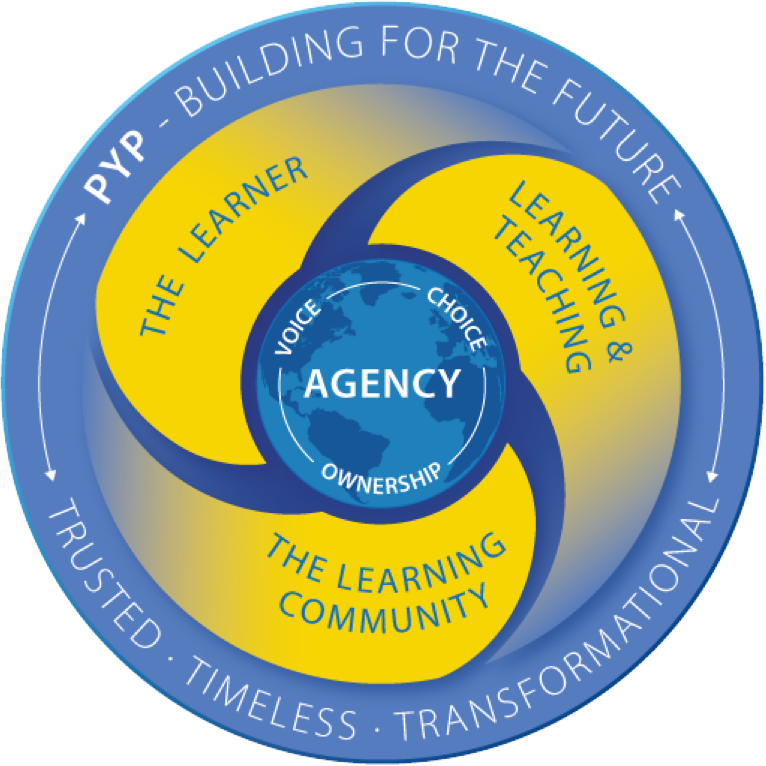
Last year we took our first step towards IB accreditation in becoming an IB Primary Years Programme Candidate School. This Elementary School division of the celebrated International Baccalaureate Organization promotes international mindedness and global understanding through student agency. The PY Programme has been incorporated in hundreds of establishments across the globe, and we are thrilled to be part of this world-wide network of IB World Schools.
In joining the IB Primary Years Programme, we are reaffirming our dedication to international-mindedness, and will continue to encourage students to think differently, with a deeper curiosity and greater understanding for the world and those around them. After over twenty years in French-Immersion education, we strongly believe in the IB mission of compassion and action, of student agency and reflection which all work together to educate young minds dedicated to making the world a better place.
The PYP curriculum framework emphasizes the central principle of agency that is threaded throughout the three pillars of the curriculum: the learner, learning and teaching and the learning community.
- The PYP and the IB mission
The Main Elements of IB Education:
Learner Profile, Transdisciplinary Themes, Programme of Inquiry and Key Concepts
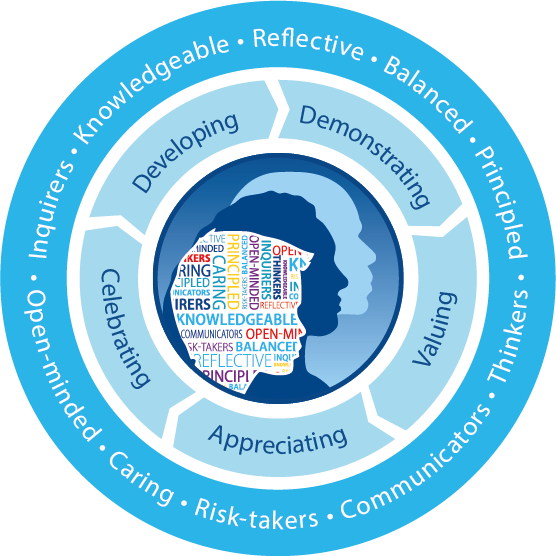
The Learner Profile
The learner profile supports students in developing international-mindedness and in taking action for positive change. Exercising their agency, students take ownership of their learning, express their ideas and opinions, and reflect on their development of the learner profile attributes.
- The Learner IB
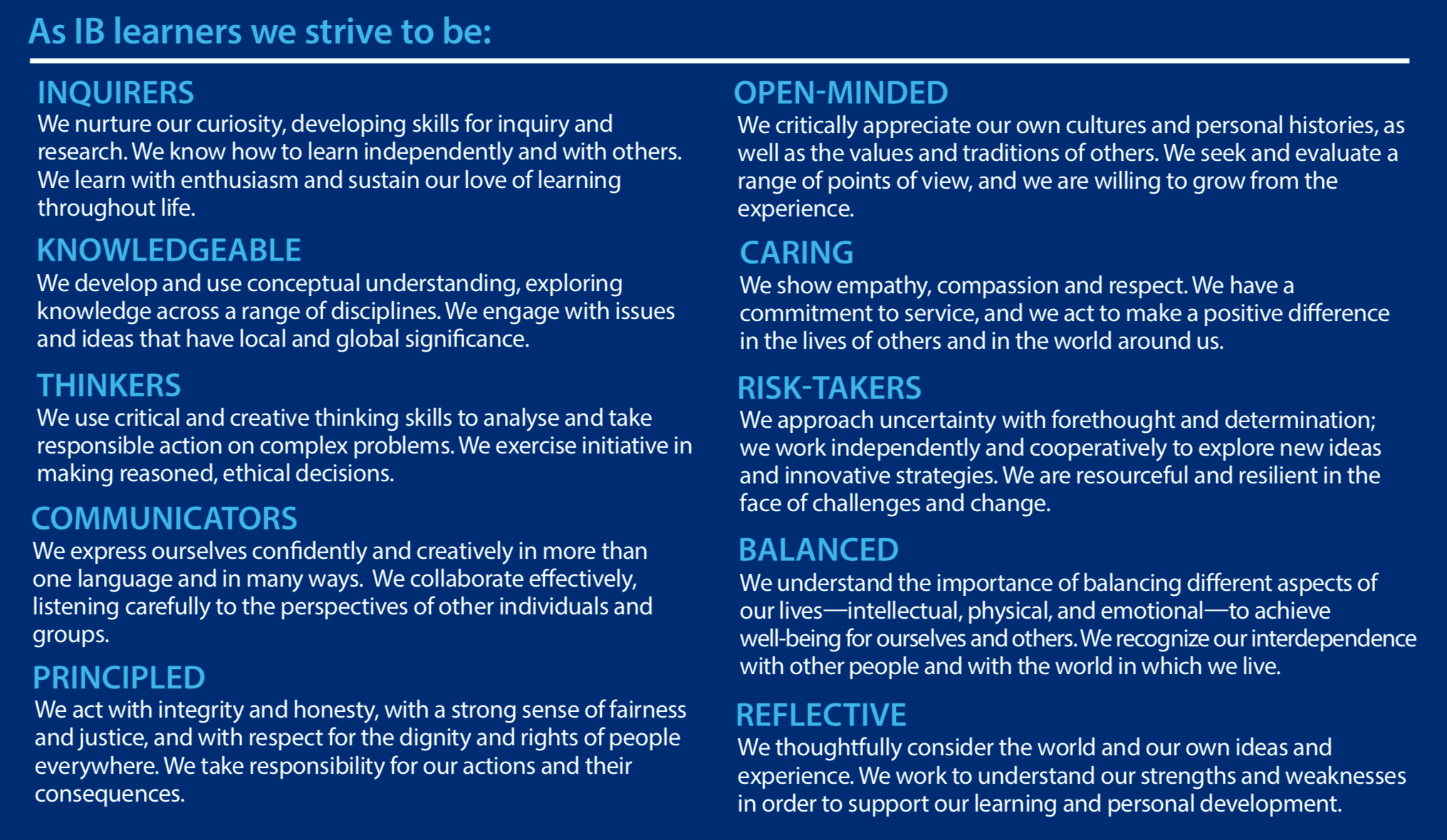
Transdisciplinary Themes
A key element of an IB education is the transdisciplinary nature of learning. The year is divided into six transdisciplinary themes through which all subjects are taught. These themes allow students to look at the world around them with more depth and understanding.
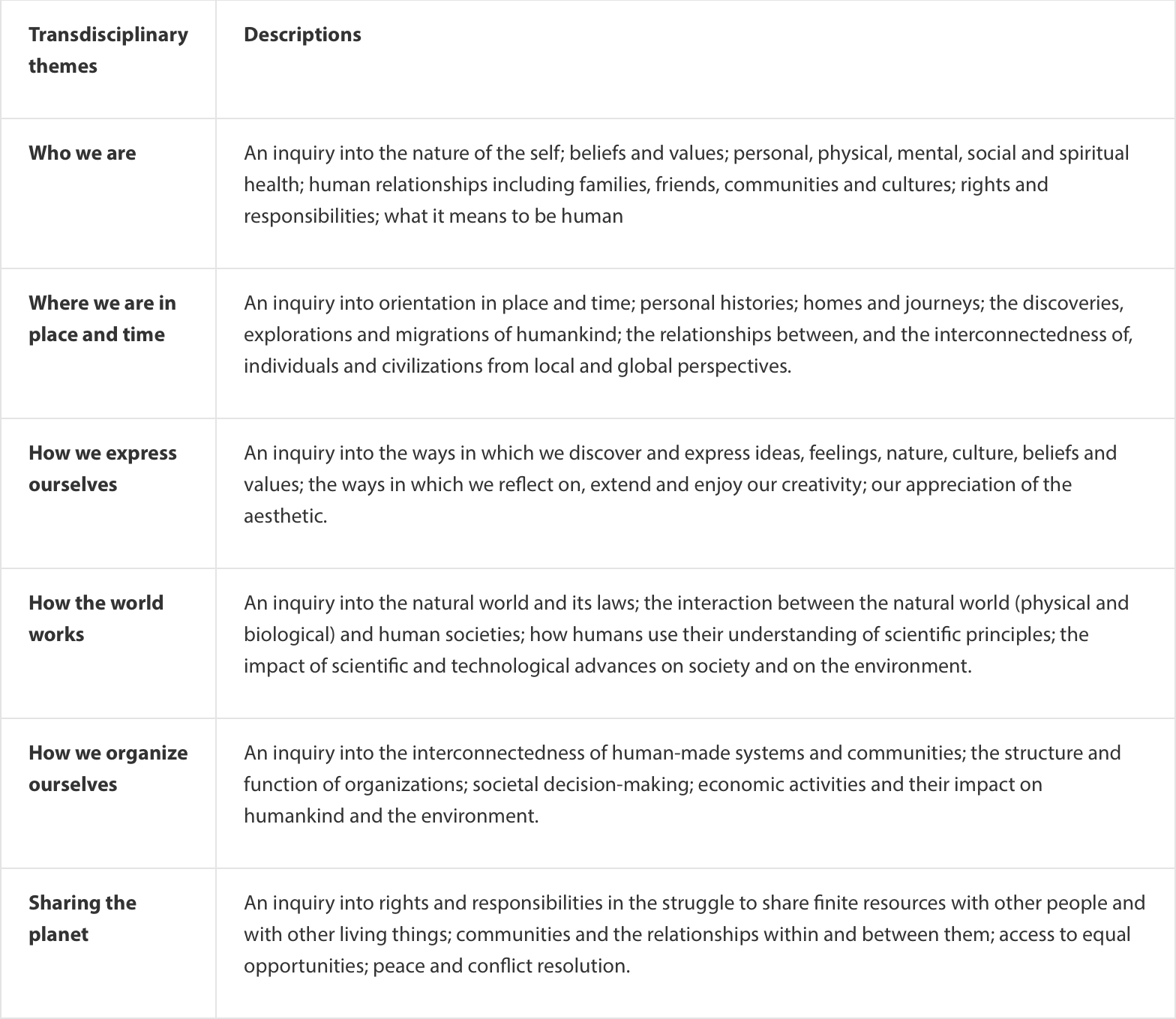
Programme of Inquiry
The transdisciplinary themes of global significance provide the context for schools to frame a whole-school programme of inquiry, which is a cornerstone of the PYP pedagogy and its flexible framework. The programme of inquiry articulates how the six transdisciplinary themes will be explored across the different age groups. It provides students in the early and primary years with the opportunity to experience a coherent and balanced curriculum. On one level, it is planned; on another level, it is dynamic because a transdisciplinary programme of inquiry leaves room for emergent and unexpected ideas, directions and connections that students might encounter. When this happens, the teaching team might modify the programme of inquiry or develop additional learning engagements outside the programme of inquiry.
- Learning and Teaching IB
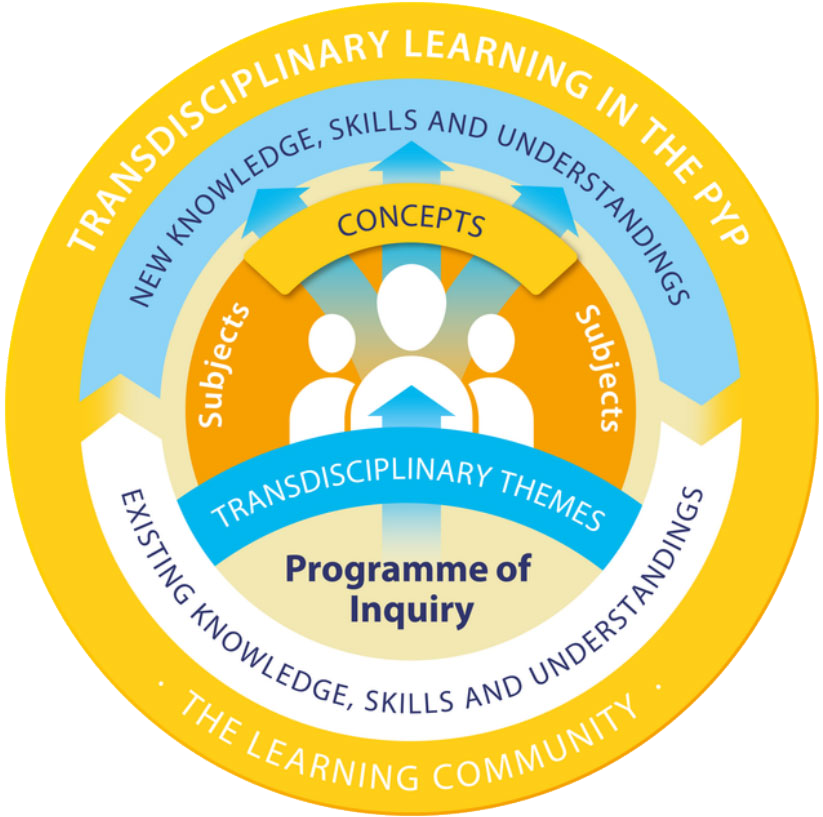
The Programme of Inquiry is the backbone of the IB curriculum. It is the structure that allows students to be thinkers and researches through a framework of inquiry meticulously planned by their teachers yet leaving room for children to explore and to alter the course of their learning through their curiosity. The six units, each with a different transdisciplinary theme, run each year in each elementary grade. In the preschool, the year is divided into four themes.
In the Programme of Inquiry, we can see that the academic year is divided into units in every different grade. Each unit lasts between 6-8 weeks and is composed of the following elements:
- Transdisciplinary theme,
- Line of inquiry,
- Learner Profile attributes
- and Key Concepts.
However, this does not mean that completing a unit in “Who we are” in Pre-K resembles anything to the inquiry in 5th grade. Each theme has its own “line of inquiry” which is the question, and vessel through which the transdisciplinary theme is viewed and therefore change drastically in each year of learning.
The IB Organization believes these themes follow us not only through childhood but also into adult life and that by learning to think about who they are and the world around them at an early stage in life, IB students become more responsible and thoughtful world citizens.
Key Concepts:
Key concepts drive learning experiences and help to frame a unit of inquiry. By identifying and investigating key concepts, students learn to think critically about big ideas. This may be done through broad, open-ended questions in an inquiry. When concepts are viewed as a set of questions, the inquiry is directed, purposeful and manageable.
- Learning and Teaching IB
Key concepts are tools which allow students to deepen their conceptual understandings. These concepts and questions guide children as they construct their beliefs and models on how the world works and their place inside their community. These questions integrate knowledge they already have and push them to recognize patterns and see connections in order to strengthen their conceptual understanding.

L'Ecole Française du Maine is a Candidate School* for the Primary Years Programme (PYP). This school is pursuing authorization as an IB World School. These are schools that share a common philosophy—a commitment to high-quality, challenging, international education that EFDM believes is important for our students.
*Only schools authorized by the IB Organization can offer any of its four academic programmes: the Primary Years Programme (PYP), the Middle Years Programme (MYP), the Diploma Programme, or the Career-related Programme (CP). Candidate status gives no guarantee that authorization will be granted. For further information about the IB and its programmes, visit www.ibo.org
